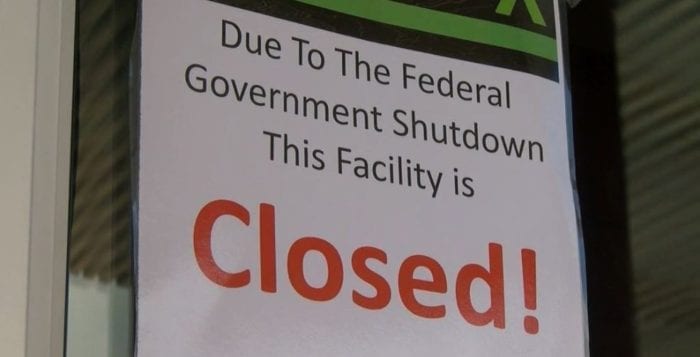Editorial: Never again
The U.S. government declared a ceasefire in a war against itself Jan. 25. The three-week agreement to end the 35-day government shutdown is a compromise to lower the guns so the two sides can talk but, if anything, the weapons are still loaded.
If it were a real agreement, it wouldn’t have been given a deadline.
That’s what the whole government shutdown has felt like, a war, and like any modern war, the people who are hurt most are the civilians caught in the crossfire.
The number of people affected has been reported so often, but it is worth repeating. There were some 800,000 federal workers who were furloughed or forced to work without pay during the government closure, the longest shutdown in this nation’s history. Last week, TBR News Media reported on businesses who assisted those federal workers by providing free food and services. Some of those shops received 200, 300 or more people in a single weekend seeking help, and those same business owners spent hundreds of out-of-pocket dollars to help feed people. Organizations that usually create food kitchens for the holiday season or during national disasters organized for the thousands affected.
Even though the shutdown is over, major news outlets report workers do not know when they will receive their full back pay. Federal watchdogs said it might take the IRS a full year to recover from the lingering effects of the shutdown. The nonpartisan Congressional Budget Office released a report Jan. 28 saying the shutdown cost the U.S. economy $11 billion, $3 million of which it will never recover.
Over the weekend, President Donald Trump (R) said the likelihood of reaching a deal is less than 50 percent. That’s not good enough.
This government shutdown was a hostage situation, and we at TBR News Media believe it should not become a regular political tool to hang the U.S. economy up by its lapels until it coughs up whatever an individual or political body desires. Another modern country has experienced a shutdown in the past. In 1975, Australia was unable to pass a budget. That shutdown resulted in first, the prime minister getting sacked then later the entire parliament was sacked as well, and a new vote was required to help reform the government. Australia has not had a government shutdown since.
The U.S. requires legislation that mandates some sort of repercussion for politicians that force, or allow, a shutdown to occur. U.S. Rep. Lee Zeldin (R-Shirley) announced at the start of the closure he would not take any pay while government workers went without. That is a good start, and it should be codified and expanded to include every elected official in the U.S. Senate and House of Representatives.
Residents should call upon their elected representatives, like Zeldin, to propose disciplinary measures once the dust of this political wrangling finally settles. While those who work in Congress won’t necessarily feel the pain and indecency that those who have lived without paychecks for several weeks had to endure, it might remind them they were elected to help — not harm — those they swore to represent.







